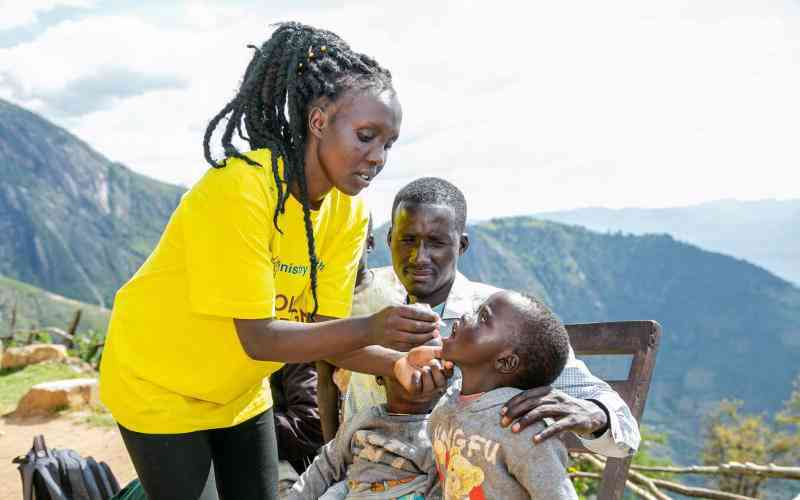Vaccination gaps leave millions of children at risk of preventable diseases

According to the United Nations International Children’s Emergency Fund (UNICEF), 14.5 million children received no routine vaccinations at all in 2023. These children, known as zero-dose, are at the highest risk of serious illness and death from diseases that vaccines are designed to prevent.
Vaccines are safe, effective, and lifesaving. The World Health Organisation (WHO) estimates that between 3.5 and 5 million lives are saved globally each year through routine immunisation. Vaccines are among the most powerful tools available to protect children from serious diseases, such as measles, polio, tetanus, and pneumonia, illnesses that can result in long-term disability or death if left untreated. However, many children continue to miss out on vaccines due to misinformation or limited access.
In Kenya, approximately 80 per cent of children aged 12 to 23 months are fully immunised, according to the Global Alliance for Vaccines and Immunisation (Gavi). However, coverage differs significantly from one county to another. For example, Kiambu County reports a high coverage rate of nearly 89 per cent, whereas Kericho lags behind at just 61 per cent. These disparities leave children in low-coverage areas particularly vulnerable to outbreaks of diseases that should already be under control. Here are six key things every parent should know about vaccines:
Vaccines are safe and thoroughly tested
All vaccines undergo years of rigorous testing before approval. Only those that meet international safety standards are authorised by regulatory bodies like the Pharmacy and Poisons Board. Most side effects, such as mild fever or arm soreness, are temporary and resolve within a day or two.
They strengthen your child’s immune system
Vaccines train the immune system to recognise and fight specific infections before your child is ever exposed. This helps the body to respond quickly and effectively.
Babies can handle multiple vaccines
Although some parents may worry about too many vaccines at once, experts, including those at the US Centres for Disease Control and Prevention, confirm that babies’ immune systems can handle far more. In fact, everyday life exposes children to many more germs than vaccines do.
Timing is crucial
Following the national immunisation schedule ensures that children receive protection at the right time. Delays leave them vulnerable during critical stages of growth. Vaccines are available free of charge at public health centres across Kenya.
Diseases still circulate, even if not visible
Measles remains a global threat and can resurge quickly if vaccination rates fall. WHO reports a rise in outbreaks and stresses that at least 95 per cent coverage is needed to prevent spread.
Herd immunity protects everyone
When the majority of people are vaccinated, diseases cannot spread easily. This protects vulnerable groups, including babies, the elderly, and those with medical conditions who cannot be vaccinated.










